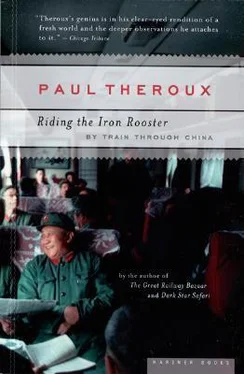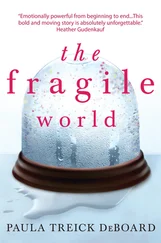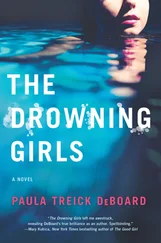Paul Theroux
Riding the Iron Rooster
Back By Train Through China
"Theroux's genius is in his clear-eyed rendition of a fresh world and the deeper observations he attaches toit." — Chicago Tribune
A peasant must stand a long time
on a hillside with his mouth open
before a roast duck flies in.
— CHINESE PROVERB
The movements which work revolutions
in the world are born out of the dreams and
visions in a peasants heart on a hillside.
— JAMES JOYCE, Ulysses


The bigness of China makes you wonder. It is more like a whole world than a mere country. "All beneath the sky" ( Tianxia ) was one Chinese expression for their empire, and another was "All between the four seas" ( Sihai ). These days people go there to shop, or because they have a free week and the price of a plane ticket. I decided to go because I had a free year. And the Chinese proverb We can always fool a foreigner I took to be a personal challenge. To get to China without leaving the ground was my first objective. And then I wanted to stay for a while — in China, on the ground, going all over the place.
The railway was the answer. It was the best way of traveling to Peking (Beijing) from London, where I happened to be. Every modern account of Chinese travel I had read seemed weakened by jet lag — an unhappy combination of fatigue and insomnia. "We were very tired there," is a common remark by travelers to China, the gasping sightseers and bargain hunters. This desire to sit down could be maddening in a country where everyone else was full of beans. Wasn't that the whole point of the Chinese — that they were always on the go? Even after five thousand years of continuous civilization they were still at it. And one of the lessons of Chinese history is that they never know when to stop.
I had seen China in the winter of 1980. It looked bleak and exhausted, all baggy blue suits and unconvincing slogans on red banners. If you said, "Surely these people ought to be wearing something more than cloth slippers in this snow and ice," you were told how lucky they were and that they used to go barefoot. The whole country was dark brown from the soot and dust. There were few trees. I went bird-watching but saw only crows and sparrows and the sort of grubby pigeons that look like flying rats. The rarer birds the Chinese stuff into their mouths.
The Chinese, then, would point through the drizzle to where a factory was coughing up smoke at the end of a muddy lane; where bent-over people were dragging wooden carts loaded with pig iron. And they would say, 'This was once all prostitutes and bad elements and gambling and bright lights and dance halls." You were supposed to be glad this sinful frivolity was gone, and fascinated by the factories, but I just sighed. I saw young women destroying themselves in mills, smashing their pretty fingers on wooden looms, or blinding themselves doing finicky "forbidden-stitch" embroidery. An official Chinese statistic said that there were seventy million portraits of Chairman Mao on Chinese walls. People whispered when they mentioned his name. Stricken and overworked, they said, "Owing to the success of the Great Proletarian Cultural Revolution…" And they served me bowel-shattering meals.
Americans came back from China saying, Acupuncture! No flies! No tipping! They give you your used razor blades back! They work like dogs! They eat cats! They're so frisky! And Americans even praised Chairman Mao, unaware that many Chinese were privately sick of him.
But that was the past, my brother Gene said, and he told me that I would be a fool not to go now. China had become a different place, and it was changing from day to day. He knew what he was talking about: he had traveled to China 109 times since 1972, as a lawyer — one of the new taipans. I planned to go in the spring this time. I kept telling myself: New people, new scenes — fresh air and the pleasure of anonymity. There were two ways of doing it — the way of the English poet Philip Larkin, who said, "I wouldn't mind seeing China if I could come back the same day." And there was total immersion.
My idea was to take a train in London, go to Paris, keep going, head for Germany and Poland, maybe stop in Moscow, take the Trans-Siberian, get off in Irkutsk, take the Trans-Mongolian, and spend May Day in Ulan Bator. Essentially the way to China was the train to Mongolia. It was traveling slowly across Asia's wide forehead and then down into one of its eyes, Peking.
Going to Mongolia that way ought to be relaxing, I thought. And it ought to give me a feeling of accomplishment. I would read a little and make notes and eat regular meals and look out of the window. I pictured myself in a sleeping compartment, reading Elmer Gantry and hearing the hoot of the train whistle echoing on the steppes, and thinking: Pretty soon I'll be there — as I drew the blanket up to my chin. And then one day I would snap up the blind and see a yak standing in an immensity of brown sand and I would know it was the Gobi Desert. A day or so later, the landscape would be green and people would be standing knee-deep in rice fields, wearing lamp-shade hats — all of that — and I would step off the train into China.
It was not that simple. It never is, and so an explanation is necessary — this book. It was my good fortune to be wrong: being mistaken is the essence of the traveler's tale. What I had thought of as the simplest way of getting there — eight trains from London to the Chinese border — turned out to be odd and unexpected. Sometimes it seemed like real travel, full of those peculiar discoveries and satisfactions. But more often it was as if I had lost my footing in London and had fallen down a long flight of stairs, perhaps one of those endless staircases designed by a surrealist painter, and down I went, bump-bump-bump, and across the landing, and down again, bump-bump-bump, until I had fallen halfway around the world.
I was not alone — perhaps that was why. I joined a tour in London — twenty-odd people, old and young. I thought: I'll be invisible, just slip into this crowd of people — and off we'll go, smiling and chatting quietly as the sleet hits the windows. 1 had not had much experience of tours. I did not know the most elementary things — that the English go on tours to save money, and elderly couples like the Cathcarts would say, "We had ever such a nice time going overland to India last year, and in Eye-ran we'd make cups of tea in the back of the bus." I did not know that English youths went to places like the Bratsk Hydroelectric Dam on package tours in order to get drunk on cheap vodka, and that Eastern Europe was uproarious with nurses from Birmingham.
Americans took these tours to meet other people, and showed me snapshots from other trips.
"The ones in the straw hats are the Watermules, from San Diego. Lovely couple. We still get Christmas cards from them. That was the Galápagos trip. They're grandparents now. That's their son, Ricky. He's very big in semiconductors."
Americans also went on these tours to shop. Shopping seemed to be the whole point of their travel. I honestly had not known that. It seemed as good a reason as anything else, and much better than going to Russia to get drunk. And there were Australians, but wherever you see Australians in the world they always seem to be on their way home.
Читать дальше














